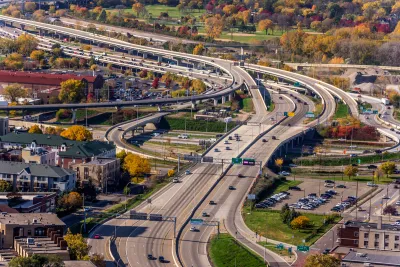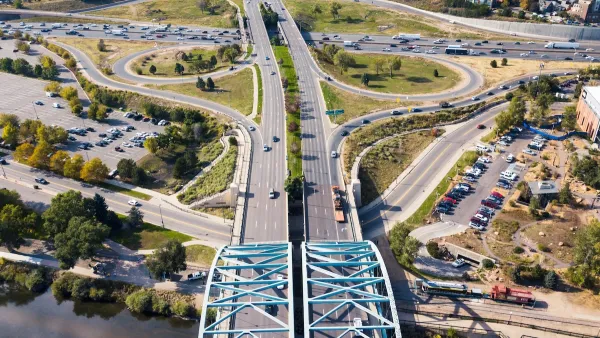The state’s department of transportation will have to consider potential greenhouse gas emissions and alter projects that don’t meet emissions reduction targets.

A 2023 Minnesota state law aimed at reducing greenhouse gas emissions “sets its sights squarely on transportation” by directing the Minnesota Department of Transportation (MnDOT) to consider climate impacts and demand for vehicle miles traveled in proposed highway and road expansion projects.
As Janet Moore explains in The Star Tribune, “If those calculations do not meet MnDOT's targets, the scope of the project must be altered ‘until it conforms,’ or it could be dropped, according a state working group that studied the new law.” A project can also include mitigating measures such as public transit, bike and pedestrian paths, environmental restoration, and roundabouts.
According to Jon Solberg, MnDOT's assistant division director for sustainability, “it's not unlike dealing with wetland mitigation, or crafting ways to comply with existing state and federal environmental laws when planning a new project. It will also encourage agencies, regional planning bodies and local governments to work together more to ensure the targets are met.”
The policy, which goes into effect next February, is part of a broader plan to reach net zero carbon emissions in the state by 2050. According to MnDOT, the agency is focusing on maintaining its existing road system and not planning major expansions.

Analysis: Cybertruck Fatality Rate Far Exceeds That of Ford Pinto
The Tesla Cybertruck was recalled seven times last year.

National Parks Layoffs Will Cause Communities to Lose Billions
Thousands of essential park workers were laid off this week, just before the busy spring break season.

Retro-silient?: America’s First “Eco-burb,” The Woodlands Turns 50
A master-planned community north of Houston offers lessons on green infrastructure and resilient design, but falls short of its founder’s lofty affordability and walkability goals.

Test News Post 1
This is a summary

Analysis: Cybertruck Fatality Rate Far Exceeds That of Ford Pinto
The Tesla Cybertruck was recalled seven times last year.

Test News Headline 46
Test for the image on the front page.
Urban Design for Planners 1: Software Tools
This six-course series explores essential urban design concepts using open source software and equips planners with the tools they need to participate fully in the urban design process.
Planning for Universal Design
Learn the tools for implementing Universal Design in planning regulations.
EMC Planning Group, Inc.
Planetizen
Planetizen
Mpact (formerly Rail~Volution)
Great Falls Development Authority, Inc.
HUDs Office of Policy Development and Research
NYU Wagner Graduate School of Public Service




























